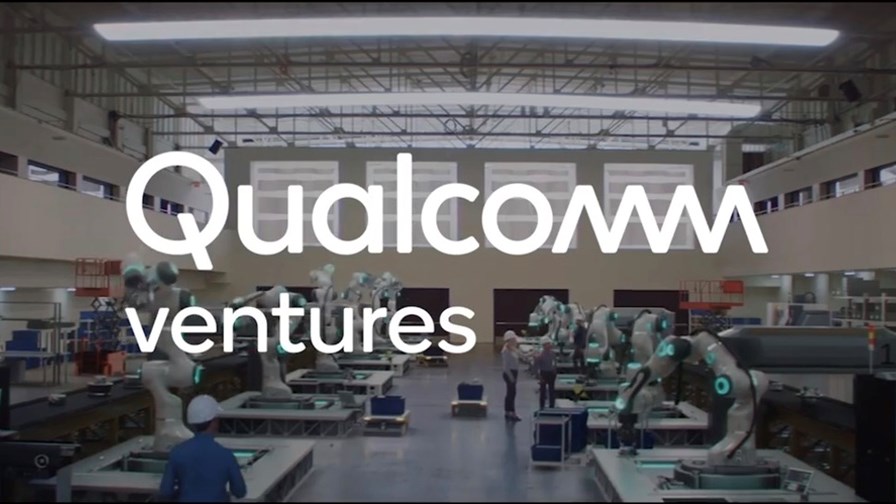
- Qualcomm invests in India’s Jio Platforms
- Google pledges billions to a digital India
- Ericsson lands private networks deal at three Paris airports
India is the main focus in this news roundup as money ours into the country’s digital economy from multiple major corporations.
- Qualcomm has become the latest company to take a stake in India’s Jio Platforms, which counts the country’s largest mobile operator, Reliance Jio (388 million subs), as one of its assets. Qualcomm Ventures, the investment arm of the wireless chip giant, has invested INR 7.3 billion (US$97.1 million) in the Indian digital services giant for a stake of 0.15%. The move comes only a week after Intel Capital also invested in Jio Platforms, which has taken on board multiple external investors in the past three months, raising more than $15 billion from the sale of about 25% of its equity.
- Still with the Indian mobile giant, its parent company, Reliance Industries Ltd. (RIL) has formed a joint venture with global oil and gas firm BP, called Reliance BP Mobility Limited (RBML), that, using the ‘Jio-bp’ brand, “aims to become a leading player in India's fuels and mobility markets.” BP has paid RIL $1 billion for a 49% stake in the JV.
- And there’s more… Google’s CEO has committed a massive investment into India’s digital ecosystem during the next several years. In a presentation made during the Google for India event, Sundar Pichai stated: “Today, I’m excited to announce the Google for India Digitization Fund. Through this effort, we will invest ₹75,000 crore, or approximately $10 billion, into India over the next 5-7 years. We’ll do this through a mix of equity investments, partnerships, and operational, infrastructure and ecosystem investments. This is a reflection of our confidence in the future of India and its digital economy.” This looks like an incredible time to be a player in India’s digital technology and services market, as the country looks increasingly to further develop its digital platforms with home-grown technology and applications.
- Ericsson has been selected by Groupe ADP, its subsidiary Hub One and Air France to deploy a private mobile network covering three airports – Paris-Charles de Gaulle, Paris-Orly and Paris-Le Bourget airports. The 4G/5G network will serve up to 120,000 users working for about 1,000 different operations at the airports. This kind of deal is good PR for Ericsson, as it has to date been left at the starting blocks by rival Nokia when it comes to developing new business in private networks (or ‘non-public networks’ as some appear determined to call them).
- More shenanigans in the UK: Unlike one of his predecessors, Boris Johnson, it seems, is (probably) up for turning… or at least he’s definitely considering it (maybe). Honest! B’s CEO, Philip Jansen, has reiterated that the national operator, and others, would face significant disruption, and customers would likely be hit by service blackouts, if they are forced on any kind of rushed schedule to build 5G networks without any involvement at all from Huawei: BT reckons it would need more than seven years to re-engineer its networks so that Huawei wasn’t playing any role in the delivery of 5G services. Having previously ruled that Huawei gear could be used for a portion of 5G radio access network rollouts by UK operators, media reports suggest strongly that Johnson is preparing a U-turn, which at this stage would shock very few people but severely hamper many businesses at a time when any sort of business really doesn’t need any further hurdles to overcome. An announcement could come as soon as Tuesday 14 July.
- A reminder: Whether the UK’s networks use Huawei gear or not will matter little to China’s 5G progress. Bloomberg reports that Chinese operators are building thousands of 5G base stations every week, with the goal of hitting 5 million within a few years, up from about 200,000 currently in use. But the goal is about more than just mass deployment: It’s about “a more automated industrial landscape” in China and it’s hard to see why China won’t achieve that.
- Italy’s Sparkle, a wholesale services subsidiary of national operator TIM, has upgraded its fibre system on the Curie submarine cable using Ciena’s WaveLogic 5 Extreme (WL5e). As a result it can pump through up to 450 Gbit/s per channel and provide direct connectivity between data centres in the US and Chile.
- Still in the international, wholesale world, Telia Carrier has landed a deal with the Norwegian Communications Authority to “establish a new secure route for electronic communication between Norway and abroad” that provides an alternative to the two paths currently used through Sweden.
- In Australia, Vodafone Hutchison and TPG Telecom have completed their merger “to establish a fully integrated telecommunications operator in Australia.” Vodafone and Hutchison Telecommunications (Australia) each own 25.05% in the merged entity, with TPG shareholders owning the remaining 49.9%. This media report on the background to the deal is interesting, as it shows how the geopolitical storm swirling around Huawei is impacting such deals.
- Cable giant Liberty Global says its Virgin Media operation has deployed Remote Phy technology in the UK, initially in just a very small rollout covering just 200 customers. But if the deployment proves successful, expect this to be rolled out extensively, as this distributed cable broadband technology can deliver more data over existing network spectrum, enables greatly improved upstream data flows and ushers in better and cheaper IP/optical technology that enables cable operators to run residential, enterprise and backhaul traffic over the same network.
- The staff, TelecomTV
Email Newsletters
Sign up to receive TelecomTV's top news and videos, plus exclusive subscriber-only content direct to your inbox.




